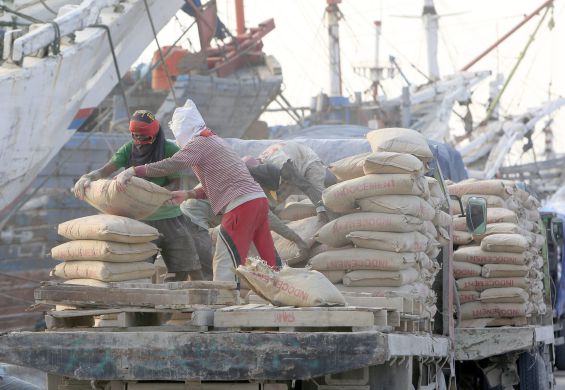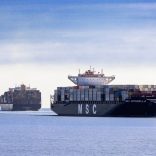Mozambique urges collaboration to ensure lasting marine landscape conservation
Cimentos de Moçambique to focus on replacing fossil fuels

Lusa (File photo)
Cimentos de Moçambique, associated with Cimpor Portugal, said on Friday that it would focus on the gradual substitution of fossil fuels in cement production in the country as part of its commitment to environmental preservation.
“At our cement factory in Matola we have set up machinery that can use waste sludge and oils as alternative fuel,” director general of Cimentos de Moçambique Jorge Reis said in an interview with Lusa on World Environment Day on June 5.
Reis said that between one and two percent of the fuel that the company uses at the plant in the production of clinker, one of the raw material used for cement production, comes from recycled products, at a cost of about US$1 million (about 880,000 euros) in the installation of appropriate technology.
“It’s just a start. We have one or two percent, mainly mud and oils. We are reusing of material which, otherwise would be wasted,” Reis said.
This year, the five Cimentos de Moçambique factories expect to produce 1.7 million tons of cement, compared to 1.6 million tons in 2015.
The trend in the future would involve increased utilisation of fuel from recycled material, in conformance with the policies of Intercement Group of Brazil, owners of Cimentos de Moçambique and Cimpor.
“We have factories in our group which are already using 60 percent alternative fuels. I can’t say at this point if Moçambique will reach 80 percent within of five, ten or 15 years, but that’s the way forward, I’ve no doubt,” he added.
Of the five Cimentos de Moçambique factories in the country, only Matola is currently being adapted to use recycled fuel, as that is the only one that has an oven, the remaining four receiving pre-produced clinker, said Reis.
In addition to generating commercial gains, the reuse of waste also creates jobs in the collection and processing of waste, Reis points out.
“This project is very important because it generates jobs. Waste is deposited in dumps where it is treated and sorted, with bottles and plastic containers turned into fuel. It will call specialised companies into being,” he said.
When industries, including agriculture, are all able to use recycled waste, Reis says, we will see an end to rubbish dump and have taken a giant step towards the preservation of the environment.













Leave a Reply
Be the First to Comment!
You must be logged in to post a comment.
You must be logged in to post a comment.